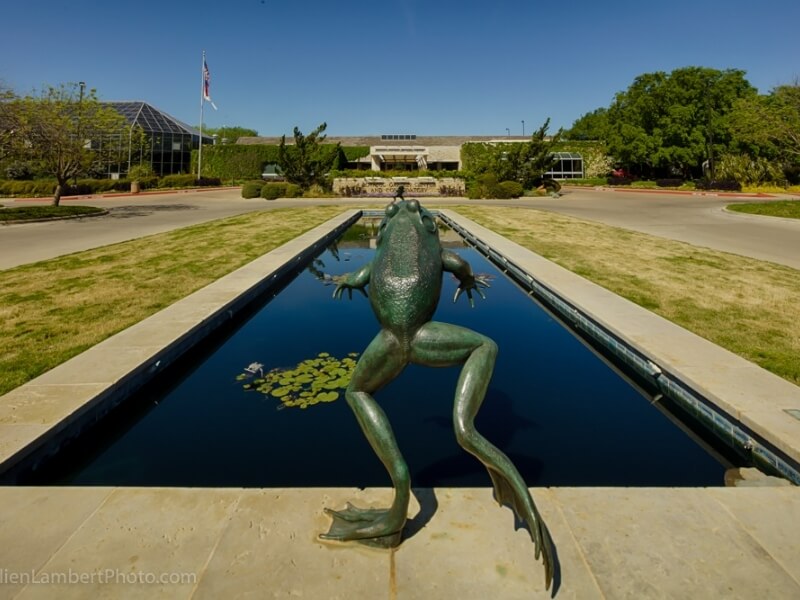Science & Conservation
Where Nature Inspires
In partnership with the Botanical Research Institute of Texas (BRIT), the Fort Worth Botanic Garden is dedicated to advancing plant science and conservation. As an internationally recognized center for research and education, BRIT drives conservation efforts that highlight the essential role plants play in our environment, inspiring our community to protect and value the natural world.
BRIT & BRIT Library 10:00 a.m. to 4:00 p.m. Monday through Friday By appointment only
Botanical Research Institute of Texas
The BRIT is a renowned scientific research, education, and conservation center with a state-of-the-art molecular and structural lab, conservation seed bank, an established press, library and 1.5 million-specimen herbarium. Our researchers generally focus their projects around the themes of biodiversity, evolution, and conservation, incorporating and contributing to our world-class collections.
Ongoing Research Programs
Carousel items
-
Texas Plant Conservation Program
The Texas Plant Conservation Program safeguards rare Texas species from extinction, preserving and restoring habitats to keep our state’s native flora thriving.
-
Philippines Program
The Philippines Program documents plant and lichen diversity in threatened southern regions, supporting conservation and expanding global biodiversity knowledge.
-
GGI Gardens Program
GGI Gardens Program unites global botanical gardens to collect herbarium vouchers, preserve genomic data, and create an accessible foundation for biodiversity research.
-
Ferns and Lycophytes Taxonomy and Evolution Program
The Fern & Lycophytes Program unravels diversity and evolution through fieldwork, phylogenetics, and genomics, welcoming new students and collaborators.
-
Ericales Program
The Ericales Program studies the evolution of tea, persimmon, blueberries, and more, uncovering biodiversity and biogeography to protect these vital plants.
-
Compositae Systematics
The Compositae Systematics Program reshapes sunflower family classification, using phylogenomics to unify species data and drive global botanical research.
-
Lichen Diversity and Evolution Program
This program combines traditional methods like morphological, anatomical, and chemical analyses with advanced technologies such as multi-omics and bioinformatics.
-
Urban Ecology Program
The Urban Ecology Program transforms cityscapes into living labs, advancing sustainability, biodiversity, and community engagement through field research.
-
Research Resources
BRIT’s Research Resources page offers access to essential tools and information, including digital portals, the advanced Sumner Laboratory, and the informative Lecture Series.
-
Research Associates
Our Research Associates are the driving force behind transformative discoveries in botany and biodiversity. Their groundbreaking work not only advances scientific knowledge but also contributes to preserving our planet’s natural heritage.
-
Research Lecture Series
The BRIT Lecture Series is designed to create community wide conversation about a diverse range of important and rapidly developing topics.
-
Digital Resources
Explore BRIT’s digital resources, including digitized herbarium collections, mycology, bryophytes, lichens, and more. Access research data, live streams, and citizen science platforms through key portals and archives.
-
Sumner Laboratory
The George C. and Sue W. Sumner Molecular and Structural Laboratory provides fundamental tools for botanical research, conservation, and education that allow the BRIT to fulfill its mission.
Interactive Experience
Take a look around
Activate a 360° view of the BRIT Atrium.
One of the largest in the U.S.
BRIT Herbarium
The BRIT Philecology Herbarium contains approximately 1,445,000 plant specimens from around the world, making it one of the largest herbaria in the United States.
Among the Southwest’s largest botanical collections
BRIT Library
The BRIT Library supports botanical research and education in Texas and around the world. Our collection has been carefully curated and is a valuable research tool for those studying systematic botany, horticulture, natural history and ethnobotany. The BRIT Library houses one of the largest and finest collections of botanical works in the southwestern United States.
BRIT Press
Publication is an integral part of the Botanical Research Institute of Texas’ commitment to scientific research by botanists, including BRIT’s own scholars, through distribution of books and journals across the globe.


